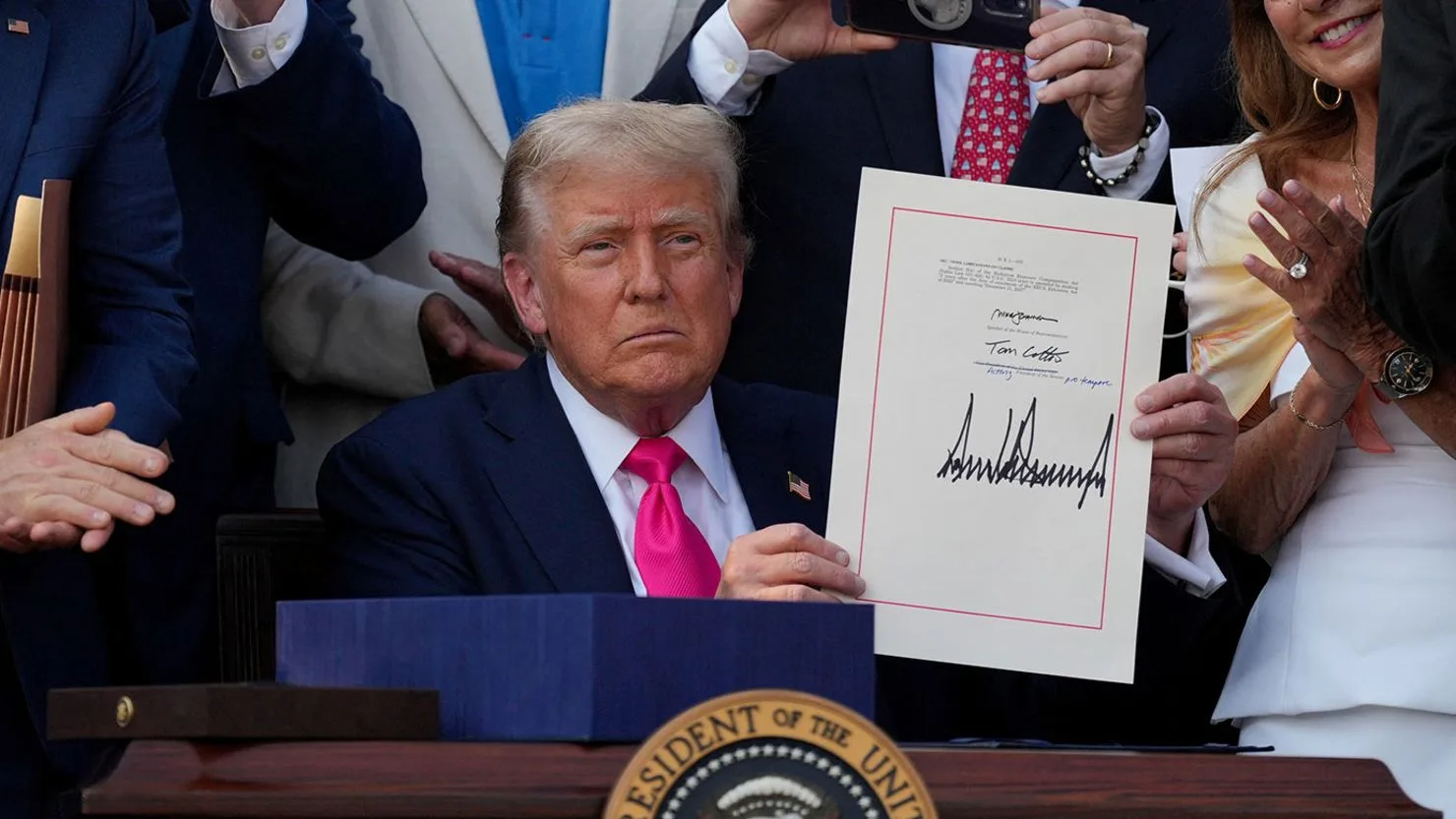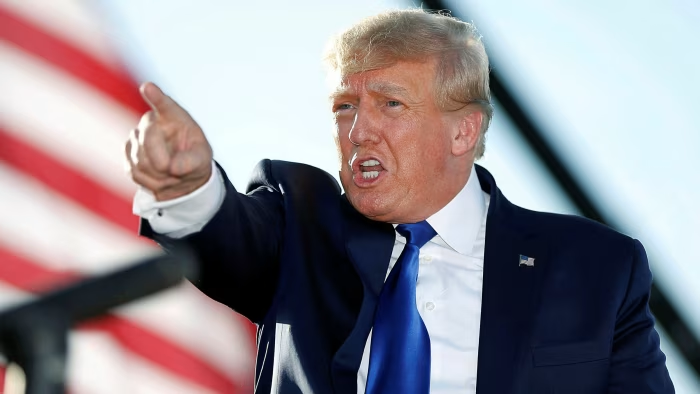The ultimate betrayal? Trump’s big bill hurts his most loyal supporters the most

Donald Trump’s so-called “big, beautiful bill” has finally exposed what his presidency has always been—a devastating betrayal of the very white, working-class base he promised to uplift. The legislation, now law, guts social safety nets and economic protections while pretending to deliver populist wins. In reality, it lays bare the fraud of MAGA populism, a spectacle years in the making that now dissolves under the weight of its own contradictions.
The costs are immense. With $1 trillion slashed from Medicaid, 17 million people will lose health coverage. Rural hospitals and women’s health clinics will shutter, food assistance for families, veterans, and children will shrink, and clean energy manufacturing—especially wind and solar—will be nearly dismantled. Financial aid for college students will be harder to access. Meanwhile, the Yale Budget Lab estimates the bill will increase the national debt by $3 trillion over the next decade, hiking interest rates and stifling the housing market. These aren’t abstract forecasts. They are the consequences of a populist movement that swore it would protect the vulnerable—and instead chose to cannibalize them.
Trump’s populism, always theatrical, has mirrored PT Barnum’s museum of freakish wonders, complete with fake petrified giants, bearded women, and stitched-up Fiji mermaids. MAGA was Trump’s version of that grotesque spectacle—an illusion where plutocrats masqueraded as champions of the people. But now, after the bill’s passage, the Fiji mermaid has come apart at the seams—its head separated from its tail.
At the bill’s signing, Trump tried to gaslight the nation, telling the crowd, “I just want you to know, if you see anything negative put out by Democrats, it’s all a con job.” He went further, boasting that the legislation was “the single most popular bill ever signed.” But a Quinnipiac poll tells another story: 53% of Americans oppose the bill, with only 27% in support—a 26-point underwater disaster.
Trump’s dishonesty didn’t stop there. Behind closed doors, while lobbying GOP House members, he assured them the bill wouldn’t hurt Medicaid. “But we’re touching Medicaid in this bill,” one Republican complained, according to Notus. The contradiction didn’t faze Trump’s team; a spokesperson simply insisted the bill would “protect Medicaid.” Case closed.
Whether Trump ignored the bill’s contents or simply didn’t care, his Republican allies knew what they were voting for—and they voted in fear. The far-right Freedom Caucus, once willing to “die on the hill” over debt, quietly folded when Trump demanded loyalty.
Senator Josh Hawley of Missouri at first resisted, warning the cuts would devastate rural hospitals and promising, “I am confident it will not be put on the floor as it is currently. Something will change.” Something did—barely—and Hawley caved: “I’m going to vote yes on this bill.”
In North Carolina, Senator Thom Tillis voiced outrage over Medicaid cuts, which would hurt his constituents. But when Trump threatened to primary him, Tillis surrendered. Trump gloated afterward on Truth Social: “Great News!” It didn’t matter that Tillis’s seat might now flip to Democrats; what mattered was punishing dissent.
The pivotal vote came from Alaska’s Lisa Murkowski. She had previously warned, “We are all afraid… Retribution is real … I’m going to use my voice to the best of my ability.” Her position allowed her to extract limited concessions—food assistance and rural hospital protections for her state, plus tax credits for Alaskan whaling captains. But 35,000 Alaskans, nearly one-third of the state’s population, rely on Medicaid and will lose coverage. “Did I get everything I wanted? Absolutely not,” Murkowski admitted. Still, she voted yes. “Do I like this bill? No,” she added. And with chilling detachment, she noted that “in many parts of the country, there are Americans that are not going to be advantaged by this bill.” Her vote traded long-term suffering for temporary gains. Even the bare minimum wasn’t enough for her own constituents.
Trump’s response to her compromise said everything: “Right, Lisa? … You are fantastic!” He had pushed her to betray her beliefs and rewarded her with praise—because she gave him what he wanted.
Throughout his presidency, Trump has warned his supporters of who he is, and few examples are as telling as his repeated use of The Snake, a song he read aloud at rallies starting in 2016. In it, a woman nurses a frozen snake back to life, only for it to bite her. When she asks why, the snake hisses:
“Oh shut up, silly woman,” said the reptile with a grin.
“You knew damn well I was a snake before you took me in.”
Trump used the poem to stoke anti-immigrant sentiment, initially against Syrians, whom he once claimed might commit a terrorist attack “you wouldn’t believe.” He even ignored a cease-and-desist from Oscar Brown Jr.’s children, who explained that their father’s work was meant to warn against failing to recognize evil.
Each time he repeated the story, his supporters cheered. They thought he was warning them about others. But the fable is about betrayal hiding in plain sight. The snake turns on the woman because betrayal is its nature. Trump has never made it a secret—he has reveled in telling the American people that he will betray them.
And he has. Again and again. The real question isn’t who Trump has betrayed—it’s who hasn’t he?
He underpaid Polish immigrant workers who built Trump Tower. He cut off health insurance for his own nephew’s sick child. His personal doctor said that Trump’s team raided his office to seize medical records, leaving him feeling like he had been “raped.” Trump University defrauded students until a $25 million settlement closed the case. His “charity,” the Trump Foundation, was dissolved for misusing funds. His use of the presidency for profit has made a mockery of the Emoluments Clause.
Even Roy Cohn, his mentor in manipulation, wasn’t safe. Cohn once said of Trump, “he pisses ice water.” Trump abandoned him when he was dying of AIDS. And now, as Trump turns his gaze toward Elon Musk—the richest man in the world—it’s clear: there is no one he won’t betray.
Trump doesn’t just betray. He enjoys it. It affirms his belief that humiliation equals power. His followers cheer his cruelty—his insults, his incitement, his open hatred—believing it’s all for them.
After the bill passed, Trump declared at a July 3 rally in Iowa, “I hate them, too. I really do. I hate them.” His MAGA fans may love him for whom he despises, but they fail to see the truth: a man whose very nature is betrayal will turn on anyone. And he already has.
“You knew damn well I was a snake before you took me in.”
Note to our readers: This article draws on comprehensive and credible sources: Axios reports on state-level Medicaid reductions, while Kaiser Family Foundation projects 17 million more uninsured due to the proposed “Big Beautiful Bill” edged into law (KFF). The New York Times outlines a stealth tax measure targeting renewable energy in the GOP reconciliation package (NYT), supported by Yale Budget Lab’s financial analysis (Yale Budget Lab). Coverage is supplemented with political commentary from Aaron Blake on X, Politico updates on Senator Hawley’s role (Politico), and President Trump’s own announcement (Truth Social). All information has been meticulously verified to uphold transparency and accuracy.



